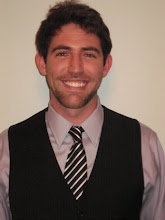Gladwell explores the mind's capability to "thin slice" - gathering surprisingly accurate perceptions of situations within, literally, a blink of an eye and with a limited amount of information. He recounts several case studies from marriage counselors, art curators, car salesman, ER doctors, and police officers in which this technique has been used -- sometimes successfully, other times ending in disaster. Within these case studies, he explores how the mind subconsciously makes perceptions based on race, age, gender, facial expressions, etc.
He presents his argument intriguingly in the first two chapters of the book but then I became less convinced, or at least more skeptical, of his argument as I read further into the book. It seemed unclear of when it is helpful to rely on this immediate decision making and when it's dangerous.
He makes the argument that people are, in some cases, hindered in making accurate decisions by having too much information and that decisions can be made more quickly and accurately with a small amount of right information. However, figuring out which information is the right information takes a lot of information. Furthermore, that contradicts the way all of us have been taught in thinking critically and analytically, which Gladwell is aware of. He really does make a compelling case, but I found it difficult to determine when thin slicing works and when it results in disaster. For example, in one instance its saving a life in an ER room and in another it ends up in several policemen emptying their guns into an innocent young man.
The case studies he presents make the book very approachable and are appropriate for proving his point. I think that it's a useful book to help you be aware of what you are thinking and, in any case, the book has gotten enough attention that it's worth being familiar with his premise. The chapter about the psychologist predicting whether a married couple would still be together in fifteen years based listening to a brief conversation (with a 90% success rate) was my favorite anecdote.
I'm aware that I've recommended reading almost all of the books I have reviewed thus far. I don't retract any of those endorsements. But being aware of how you may subconsciously make decisions seems of a bit more relevance and importance than others I've read and suggested.
Subscribe to:
Post Comments (Atom)

No comments:
Post a Comment